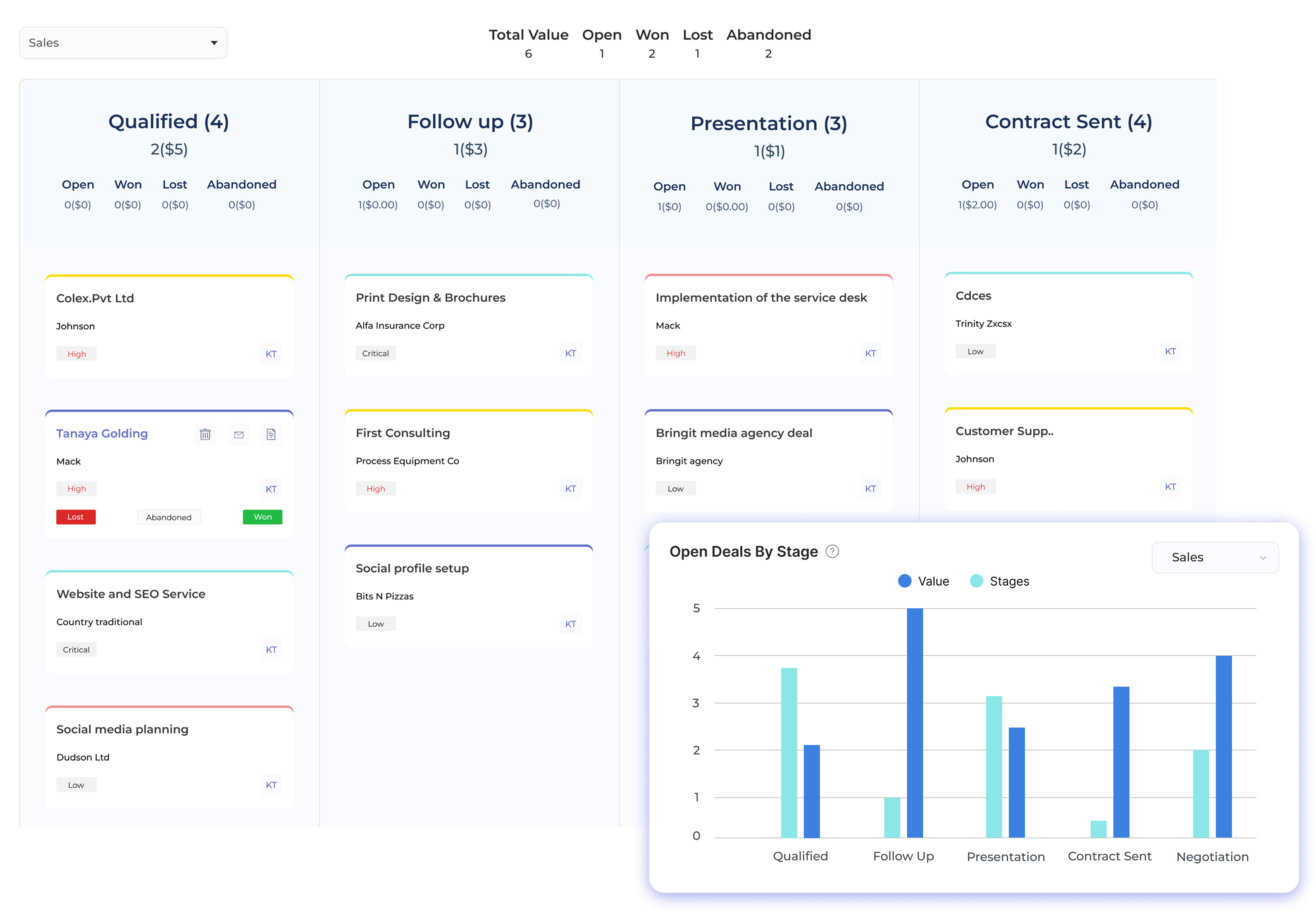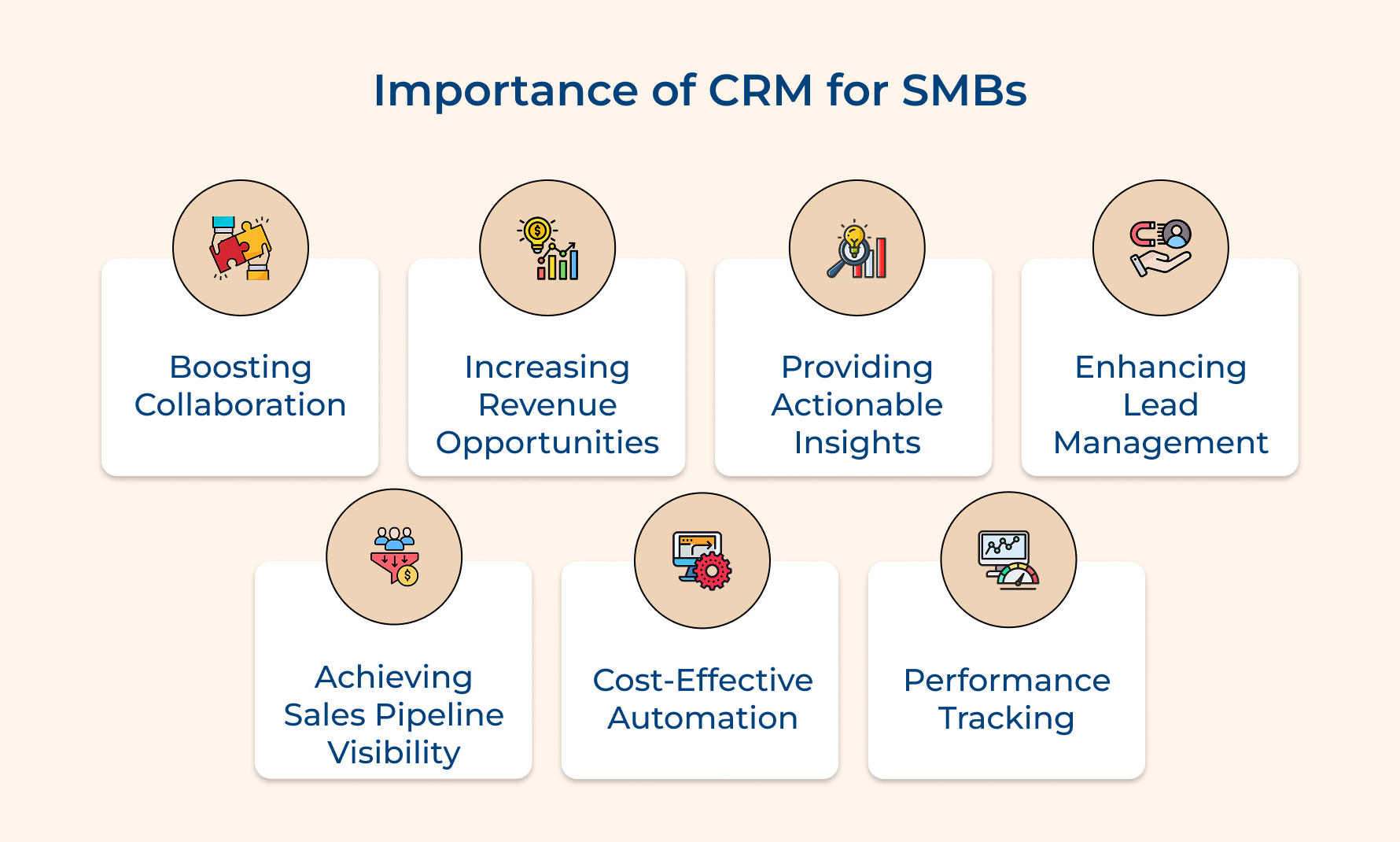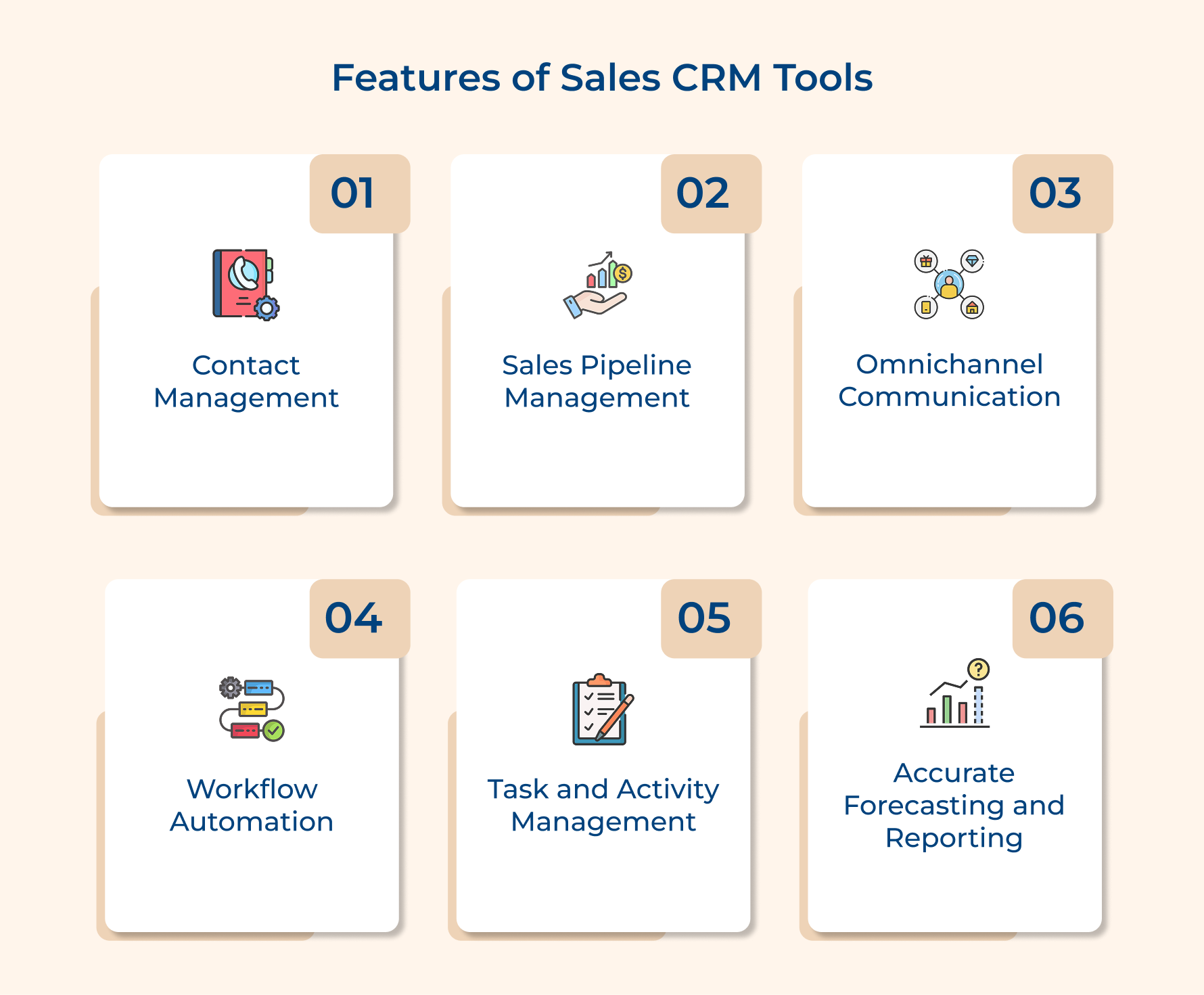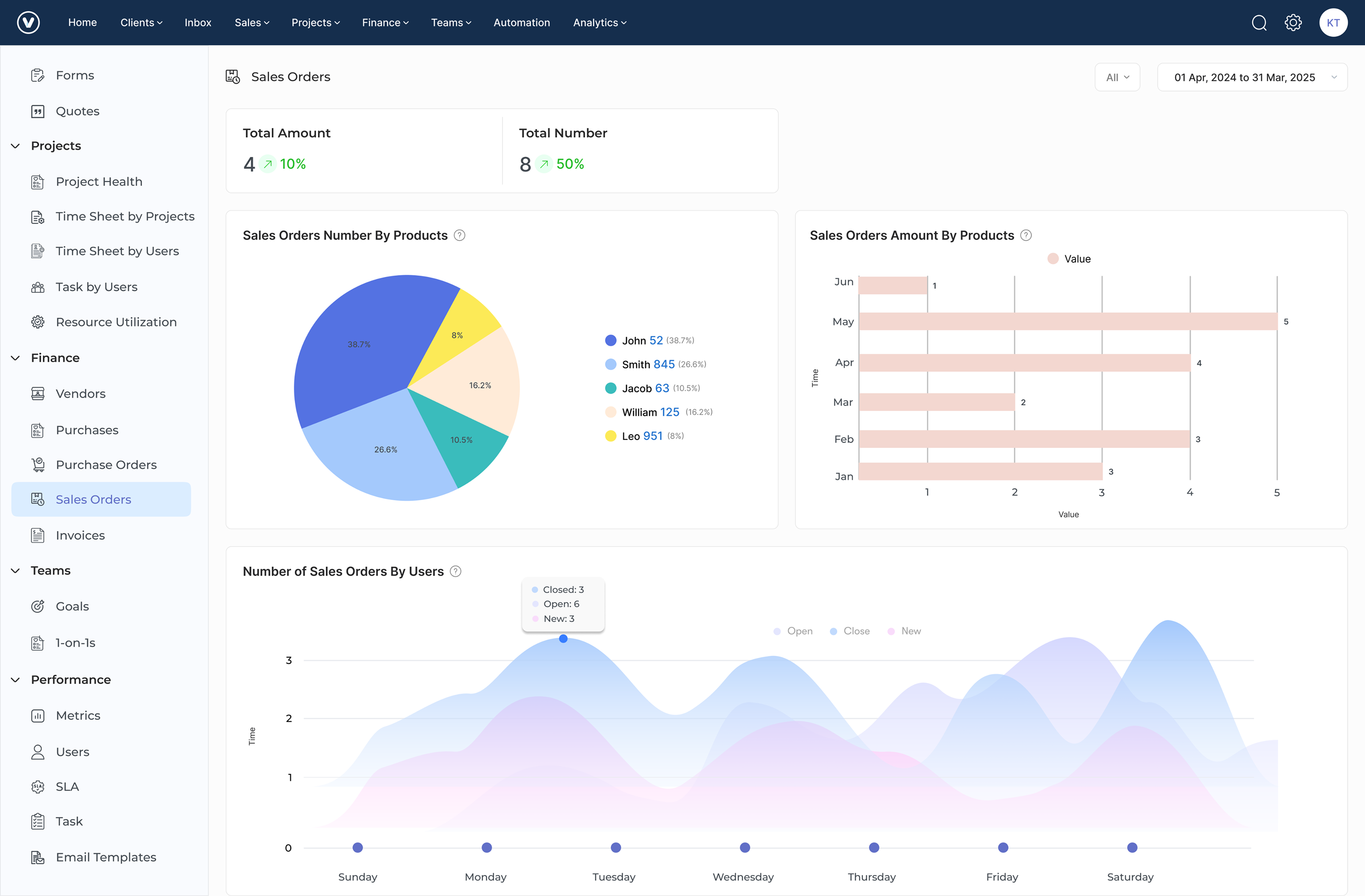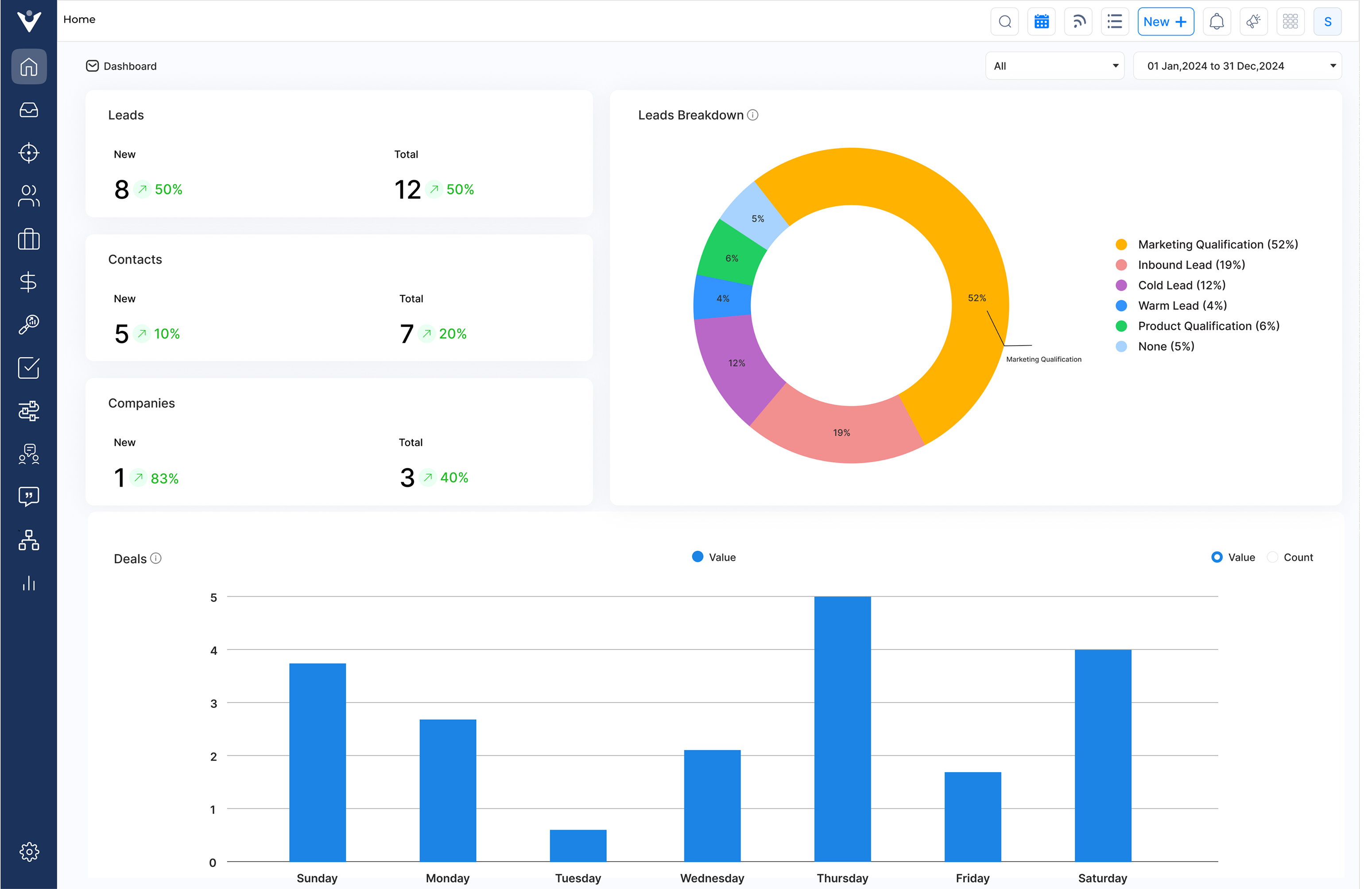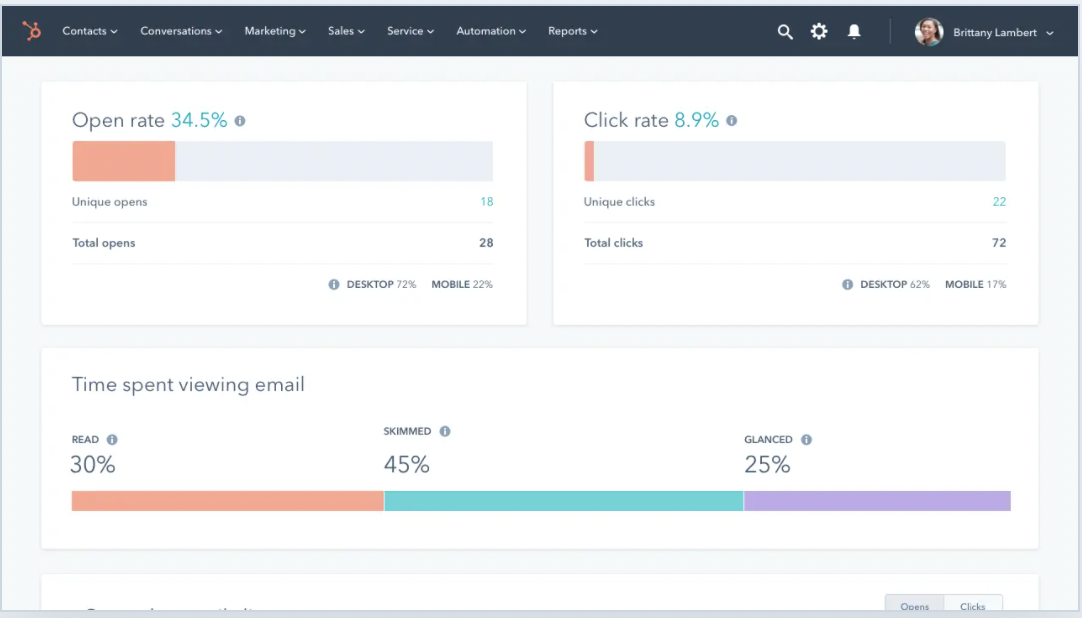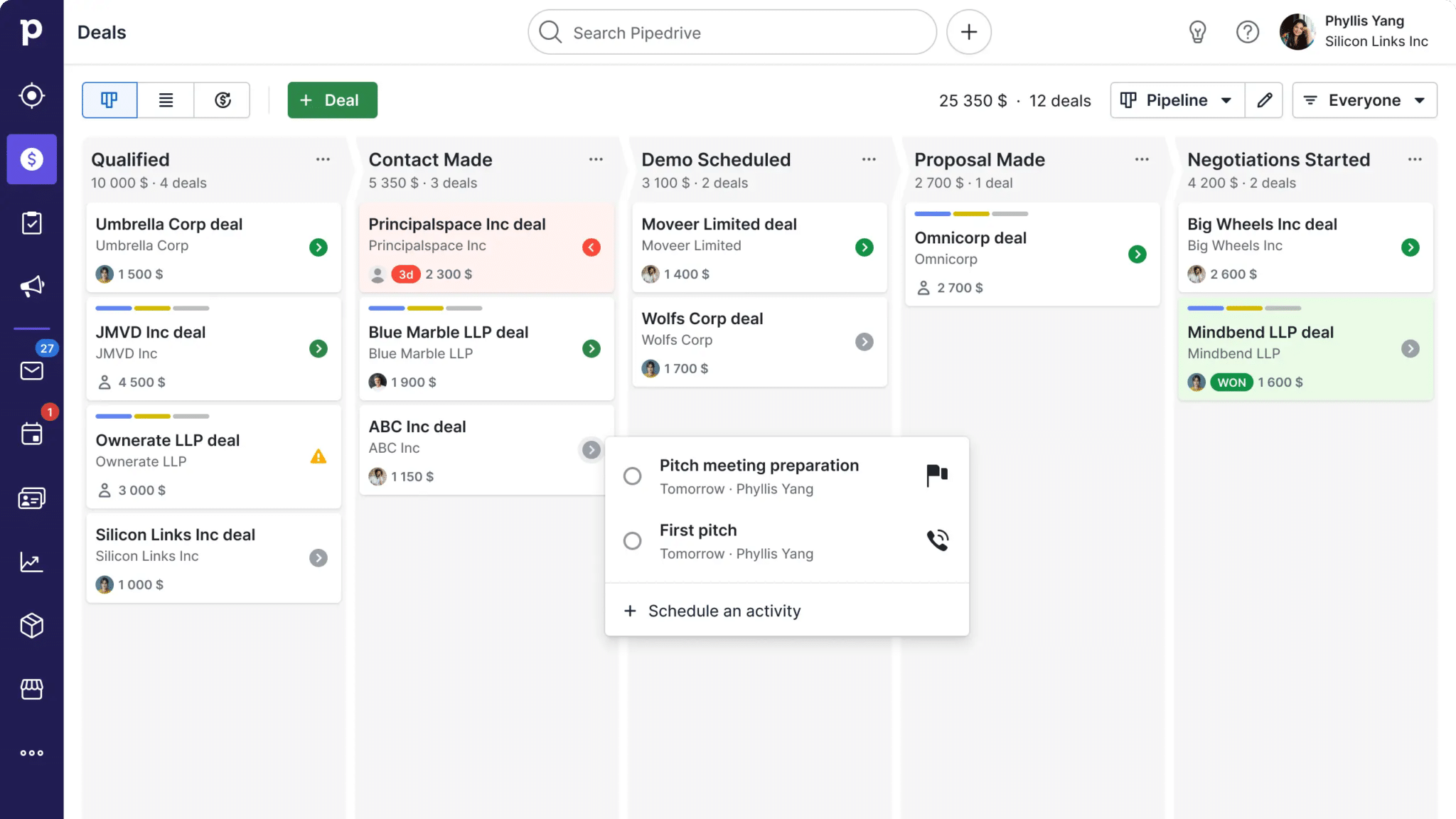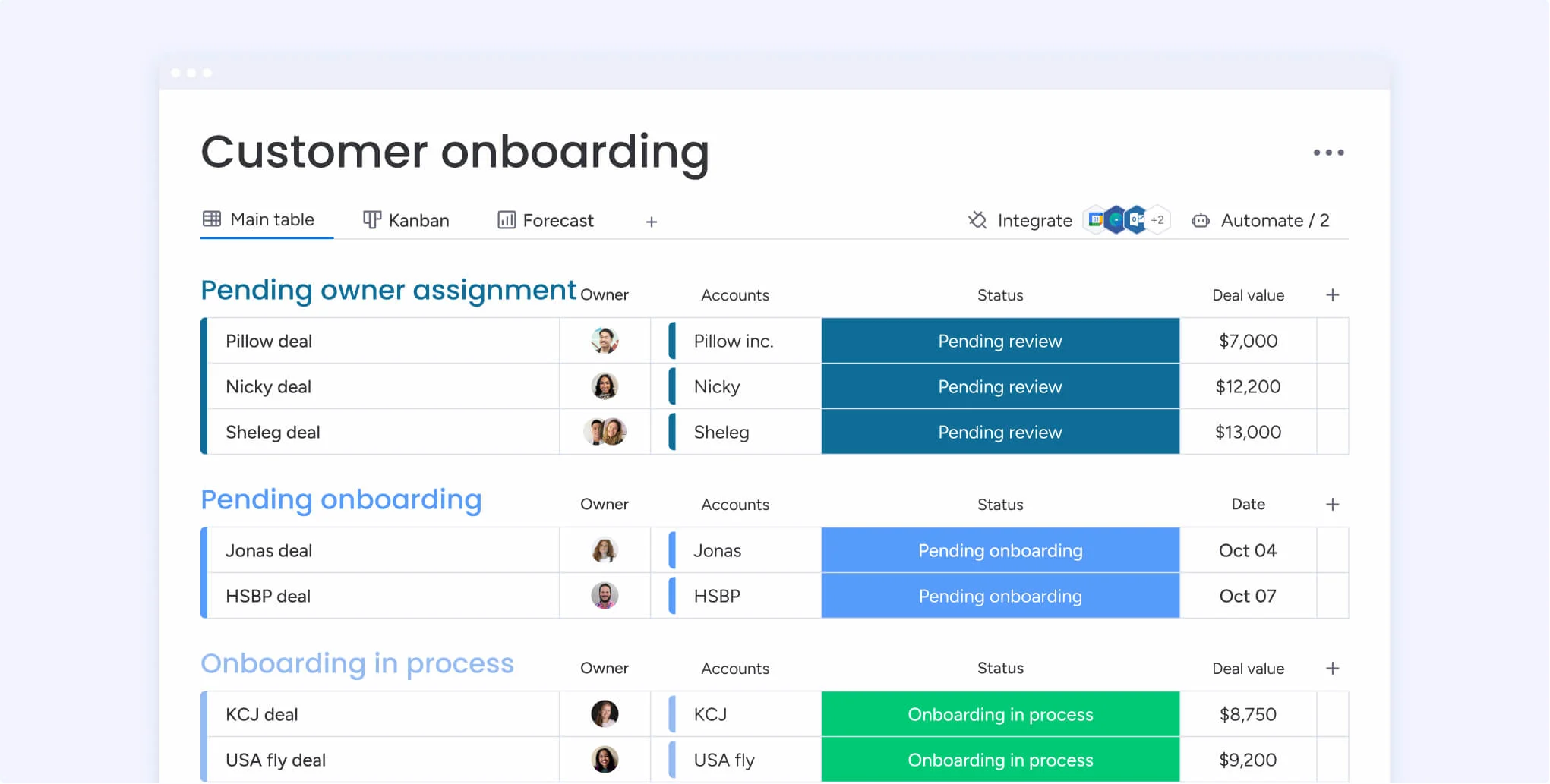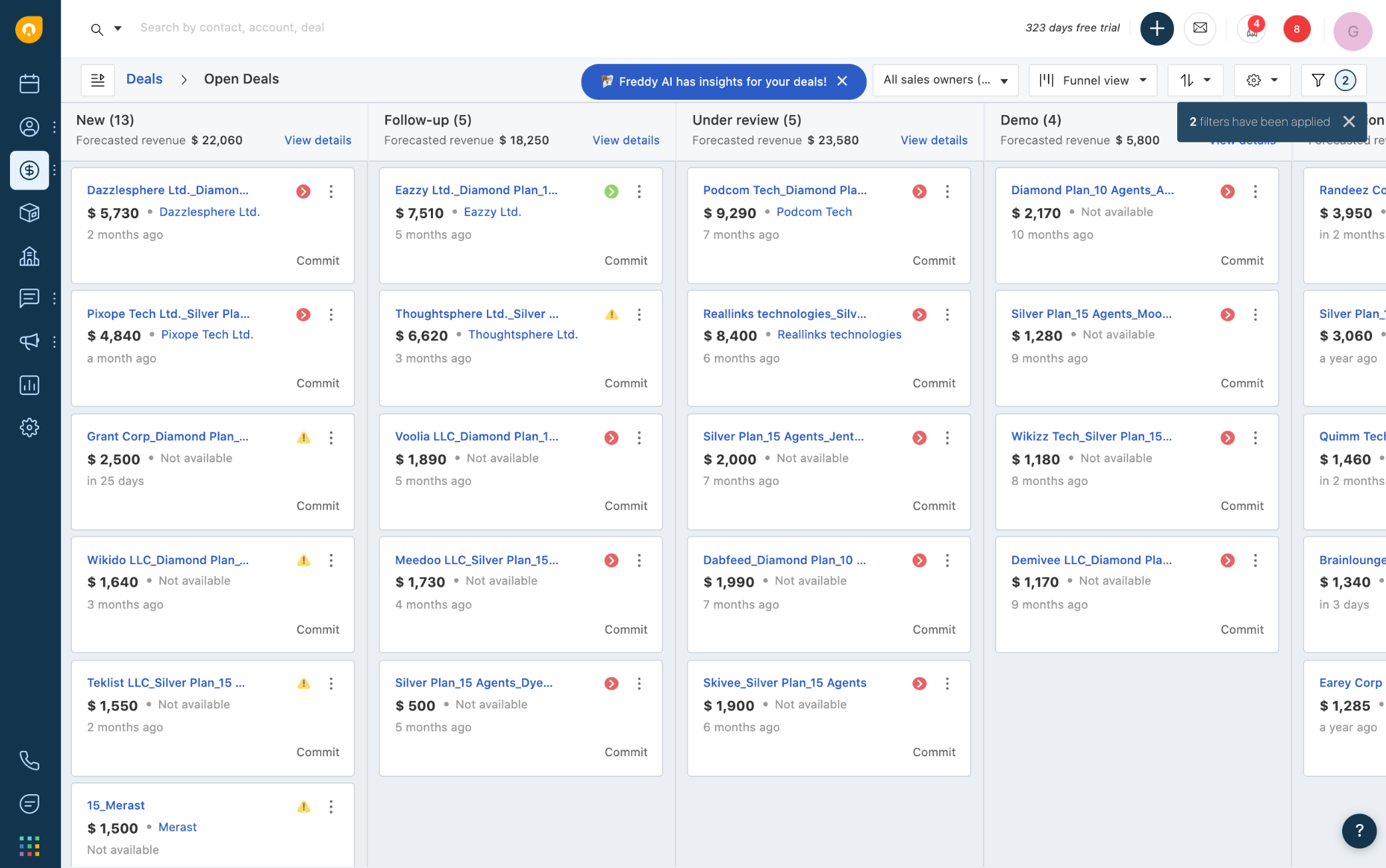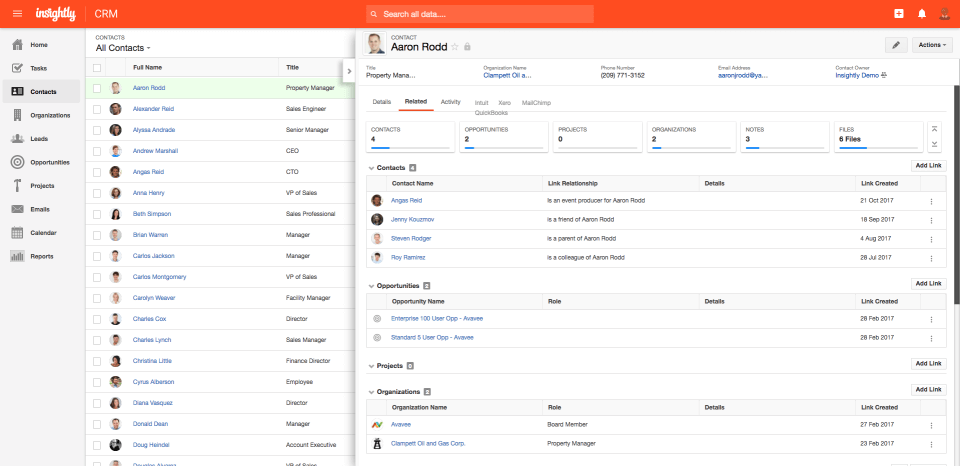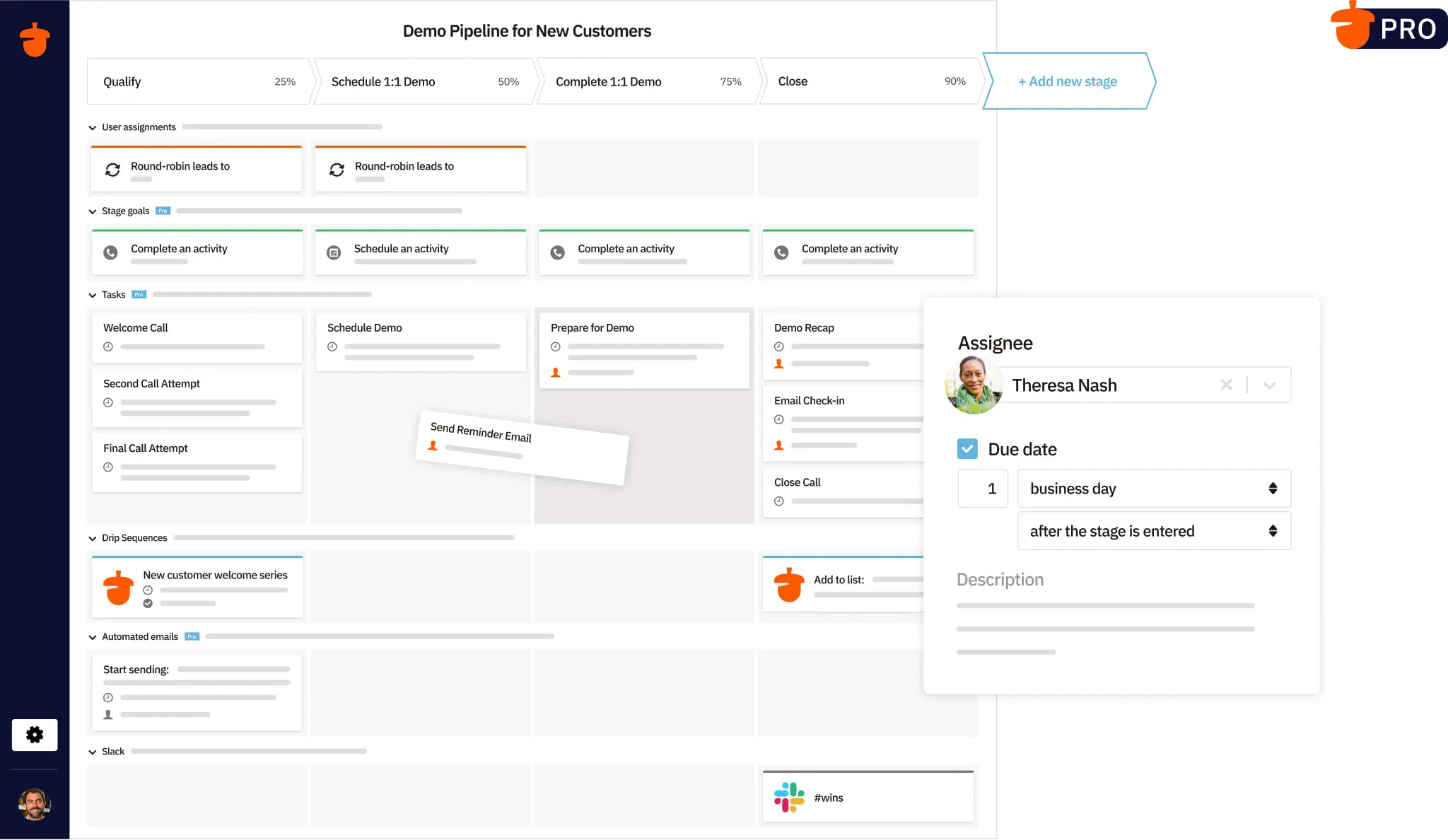1. Boosting Collaboration Across Teams
CRM tools for small businesses software centralize customer information, providing sales, marketing and customer service teams a simple way to access data in real time. Teams can easily collaborate on strategies, share insights to ensure a positive user experience, and achieve more efficient workflows.
2. Increasing Revenue Opportunities
The system identifies high-value customers so that Sales teams can focus on the most promising leads and improve sales opportunities. The automated lead-nurturing feature of sales CRM helps sales businesses keep potential customers engaged to eliminate missed opportunities.
3. Providing Actionable Insights
The platform collects and analyzes data from customer interactions to provide organizations with valuable insights. Getting insights into customer preferences and trends helps companies to make smarter choices that improve overall sales team performance.
4. Enhancing Lead Management
One of the best benefits of CRM for small businesses is lead management, which helps in tracking interactions with leads and follow-up automation. The system scores leads based on their potential so that teams can prioritize high-quality leads, leading to higher conversion rates.
5. Achieving Full Sales Pipeline Visibility
Sales CRM platforms provide transparency into the sales pipeline for businesses to track the progress of each lead. Clear visibility helps managers identify bottlenecks within the pipeline to keep it efficient and forecast sales better.
6. Cost-Effective Marketing Automation
The platform automates common marketing tasks like email campaigns, social media management, and targeted messaging. The Segmentation capabilities keep marketing focused on the right audience to improve engagement. Automation, along with segmentation, helps in keeping the marketing budget cost-effective while improving returns on investment.
